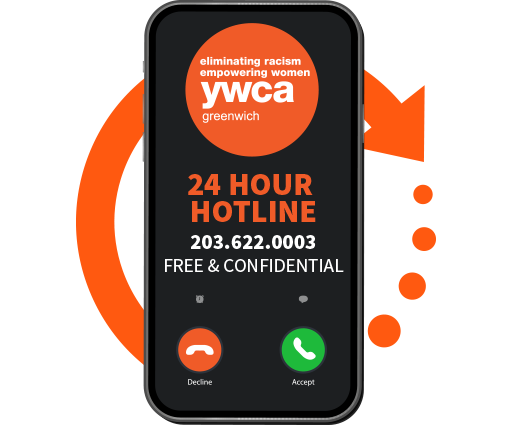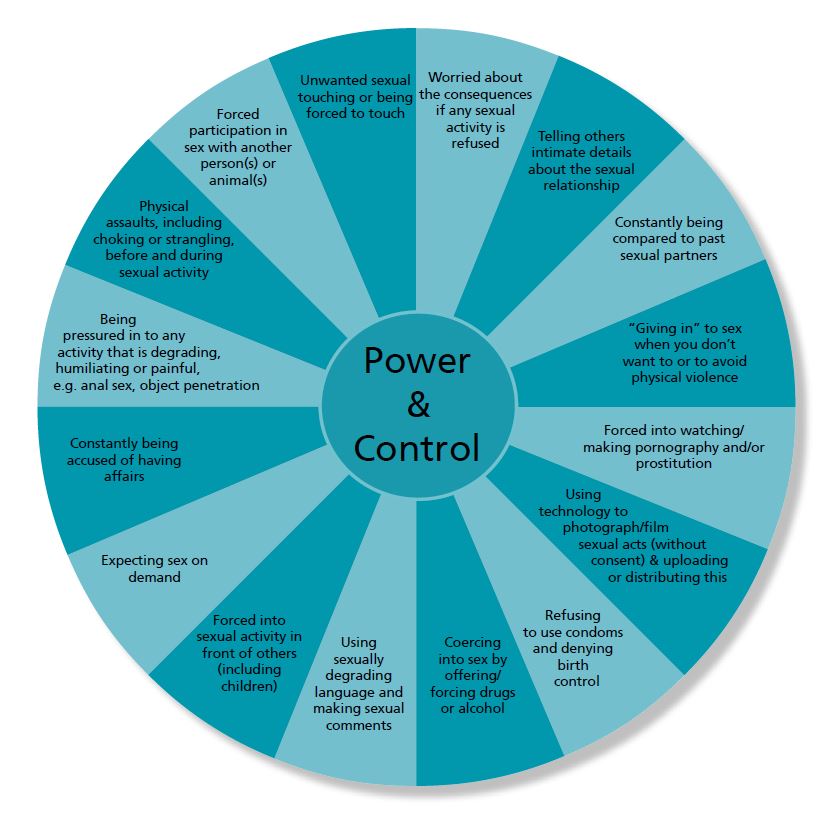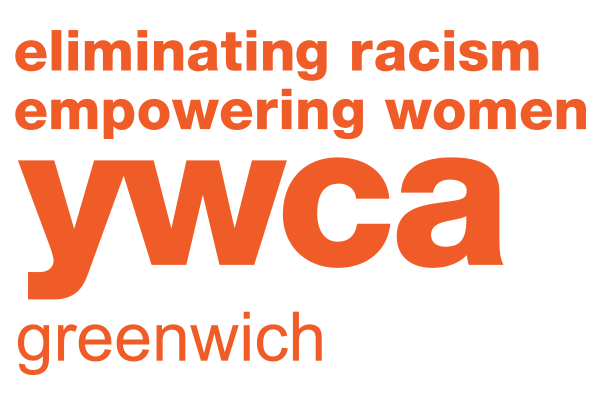Harmony Project
of YWCA Greenwich
YWCA Greenwich has been providing critical domestic abuse services in Greenwich for over 40 years. Over the last decade, we have launched a more comprehensive response to violence and abuse in our community to include public awareness, professional training, violence prevention programs, and sustainability services such as housing, civil legal guidance, and financial empowerment.
As the needs of our community grow over time, YWCA Greenwich continues to evolve to meet those needs to the best of our ability. We are proud to announce that we are now offering services and support to victims and survivors of sexual violence in addition to the work we’ve been doing to address interpersonal violence in Greenwich.
- : Domestic and Sexual Violence Services
- 24/7 Hotline: 203-622-0003
- Crisis Intervention
- Emergency Shelter
- Individual and Group Counseling for Adults, Teens and Children
- Civil and Criminal Court Advocacy
- Victim Advocacy
- Violence Prevention Programs
- Training Institute
- Public Awareness, Education and Community Building

What Is Domestic Violence?
Conflict is normal and to be expected in all relationships. However, conflict can escalate to abuse when one partner behaves in such a way to get and maintain power and control of their partner.
Domestic violence is not an argument once in a while, or a moment now and again when we say some- thing we later regret.
Domestic violence occurs when one partner intimidates, manipulates or threatens the other in order to establish dominance. Often, an abuser uses physical violence to control a partner, but physical violence does NOT need to be present for abuse to occur.
Domestic violence can happen to anyone regardless of education level, economic status, race, ethnic or religious background, physical ability, age, sexual orientation or gender identity.
Domestic Violence Is Not Just Physical Abuse
Verbal Attacks: Name-calling; mocking; accusing; blaming; yelling; swearing; making humiliating remarks or gestures.
Pressure Tactics: Rushing you to make decisions through intimidation; threatening to withhold money; manipulating the children; telling you what to do.
Disrespect: Interrupting; changing topics; not listening or responding; twisting your words; putting you down in front of other people; saying negative things about your friends and family.
Abusing Trust: Lying; withholding information; cheating; being overly jealous.
Emotional Withholding: Not expressing feelings; not giving support, attention, or ignoring; not respecting feelings, rights, or
opinions.
Economic Control: Preventing you from working or forcing you to work, withholding money or assets or financial information, restricting your spending or giving an allowance, amassing debt without your knowledge
Stalking and Harassment: Making uninvited visits, calls, emails or texts, following you, keeping tabs on your whereabouts, refusing to leave when asked.
Digital Abuse: Excessive calls or texts, monitor- ing your voicemails, online activity and/or social media, insisting on knowing your passwords, GPS tracking of your whereabouts, threatening or humiliating posts or comments on social media, preventing access to internet.
Isolation: Preventing or making it difficult for you to see friends or relatives; monitoring phone calls; telling you where you can and cannot go; taking your car keys or otherwise preventing you from using the car.
Intimidation: Making angry or threatening gestures; use of physical size to intimidate; out shouting you; driving recklessly or threatening to harm other family members; threatening to re- port you to child welfare or other social services agencies.
Sexual Violence: Degrading treatment or dis- crimination based on your sex or sexual orientation; using force, threats or coercion to obtain sex or perform sexual acts.
Physical Violence: Being violent to you, your children, household pets or others; slapping, punching, grabbing, kicking, choking, pushing, biting, burning, stabbing, shooting, etc.
Tips for Talking to Your Kids About Relationships
Before Talking to Your Kids, Think About Your View About Relationships
Do you have expectations of people’s behavior based on their gender? How should people behave when they disagree? How should decisions be made in a relationship? Make sure that you can explain your reasoning and can give examples.
Become Their Source For Information
Give your kids clear examples of what is appropriate in a dating relationship. Talk to them about your standards of conduct that you expect rather than letting locker room or slumber party talk be their only source of information.
Tell the Whole Truth: Good and Bad
Tweens and Teens generally view relationships very idealistically. Support these expectations but also be realistic with them about the bad things that can happen. Let them know that violence is never acceptable. Give them a few suggestions or phrases to help them get out of difficult situations (“I am not ready to go that far” or “I am uncomfortable, can we talk about this?”).
Teach Assertiveness, Not Aggressiveness
One of the best skills parents can teach their children is to make their feelings known by expressing their opinions, feelings and desires clearly. For example, if they do not want to do something, they need to say so. Finally, if there is a conflict, if things cannot be settled, encourage them to always take a break and cool down before feelings get hurt.
Teach Problem Solving
When confronted with a tough issue, have your child determine what exactly happened and what may have caused the situation.Then, ask them to think of several different ways it could have been resolved, consider the consequences of each of the alternatives and discuss the choices.
Teach Negotiation
Help your children understand that compromise and taking turns are positive steps to a healthy relationship and that violence, threats and insults have no place in respectful negotiation. Teach your children to negotiate and acknowledge the situation. State each person’s point of view honestly , and discuss options that allow both people to “win.”
Keep Lines of Communication Open
Secrecy that can isolate kids from friends and family is not acceptable and can be the first signs of manipulation and coercion. Teach your child that being strong also means being brave enough to ask for help from adults they trust.
Be the Ultimate Role Model
Young people learn by observing those around them, especially their parents. It is critical that you respect yourself, your partner, and other people.
Healthy Relationship Quiz
Most people think that “abuse” means physical abuse. But emotional and mental abuse also make a relationship unhealthy. This Healthy Relationship Quiz was developed to help people decide if they are in an unhealthy and abusive relationship.
- Are you afraid to speak your mind, express how you feel or ask for something you need?
- Does your partner tell you that you are “stupid, crazy”, or “inadequate” when you disagree?
- Does your partner make fun of your ideas or opinions?
- Is your partner bossy and/or try to control every detail in your relationship?
- Is your partner extremely demanding and jealous?
- Do you often feel guilty and second-guess your choices in friends, social activities, jobs, because of your partner’s negative comments about these choices?
- Are you afraid of your partner’s temper, feel like you walk on eggshells, and/or are constantly monitoring what you say and do as an attempt to avoid making them angry?
- Do you find yourself making excuses for your partner and justifying their actions to others?
- Do you feel more “free” to be yourself when they are not around?
- Does your partner throw or break things when angry?
- Does your partner try to control where you go and what you do?
- Does your partner pressure you to engage in sexual activities which you are uncomfortable with and put you down if you refuse?
- Does your partner threaten to kill or hurt themselves if you have a differing opinion, try to end the relationship, or do something they disapprove of?
- Does your partner try to make you feel guilty for having a “life” (e.g., friends, interests) apart from the relationship?
- Does your partner criticize your family and friends and ask you to stop seeing them?
- Do you feel that you have changed, lost touch with who you are, or have become someone else in order to be with your partner?
- Have your friends or family expressed concern about your relationship and/or your well- being?
- Does your partner know how to make you feel bad (e.g., what buttons to push) and use it often to hurt you?
- Have you lost touch with your friends, and only hang out with your partner’s friends?
- Does your partner try to control you with anger and guilt or lash out when you don’t do exactly what they want?
- Has your partner ever hit, slapped, punched, shoved, grabbed or shaken you?
- Has your partner ever threatened to hurt you, take important things away, or leave you?
- Has your partner ever called you names, put you down, insulted you, and/or embarrassed you in front of others?
- Do you feel like you never get anywhere when you try to communicate?
- Do you spend large amounts of time preoccupied with what you’ve said or how its’ interpreted?
If you answered “yes” to any of these questions, you be recognizing signs of relationship abuse. Everyone deserves to be in a safe and healthy relationship, free from violence and fear.
What to Do if You Suspect Someone is Being Abused
but they have not disclosed, and you don’t know for sure
Do.....
- Express concern
- State clearly why you are concerned, what behaviors you’ve seen
- Assure confidentiality and privacy
- Let them know you know how to get help
- Accept whatever they say
- Listen in a non-judgmental way
- Reassure them that the lines of communication are always open
- Remind them that the abuse is NOT their fault
- Carefully and privately document any overt evidence of abuse
- Call YWCA Greenwich Domestic Abuse Services for guidance and support for yourself
Don’t....
- Pressure them to talk to you
- Assume they want to talk about it
- Publicly talk about it or gossip
- Try to rescue them
- Blame or criticize them or their partner
- Tell them what to do
- Intervene beyond your own capability
- Put yourself at risk
- Confront the abuser
- Ask too many questions; let them open up at their own pace
- Place hotline information in their bag or send an email or These may be monitored by the abuser
What is Sexual Violence?
Sexual violence is a non-legal, all-encompassing term that occurs on both the individual and societal level. On an individual level, sexual violence is a wide range of sexual acts and behaviors that are committed without consent. On a societal level, it is a preponderance of attitudes, actions, and social normas that promote a cultural tolerance, acceptance, and denial of sexual assault and abuse.

Getting Help
If you or someone you know has experienced domestic abuse and/or sexual violence, there are resources available for help and support, including:
- YWCA Greenwich 24-Hour Hotline: (203)-622-0003
- Rape, Abuse & Incest National Network (RAINN): Visit www.rainn.org for information and resources on sexual violence.
- National Sexual Assault Hotline: Call 1-800-656-4673 to speak with a trained advocate who can provide support and resources








